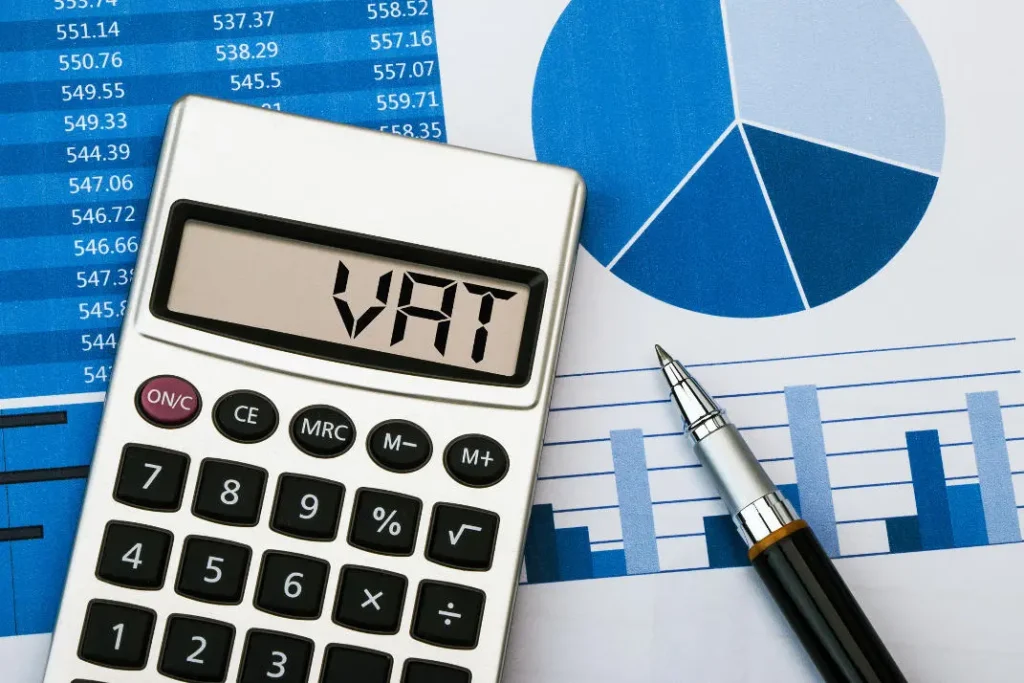TL;DR Inheritance tax in Thailand applies to estates exceeding THB 100 million under the Inheritance Tax Act B.E. 2558 (2015). The tax rate is 5% for direct descendants or ascendants and 10% for other beneficiaries, based on the market value of assets such as land, securities, and deposits. Spouses are fully exempt, and estates below the threshold or inherited before 2015 are not taxed.
Both Thai nationals and foreigners inheriting assets in Thailand may be liable, depending on residency and asset location. The inheritance tax return must be filed within 150 days of receipt, and penalties apply for late or incorrect filings, including surcharges and fines. Understanding Thailand inheritance tax law, available exemptions, and proper estate planning can significantly reduce liability and help avoid the 10% inheritance tax.
Introduction
Inheritance tax is an important consideration for anyone who owns assets in Thailand or is a beneficiary of assets located in Thailand. Whether you are a Thai national, an expat with residency, or a foreigner inheriting assets located in Thailand, understanding the liabilities relating to inheritance tax is important for estate planning.
Introduced under the Inheritance Tax Act B.E. 2558 (2015), inheritance tax in Thailand is designed to create a fairer distribution of wealth and applies to estates valued above THB 100 million (approximately USD 3,000,000).
In this guide, we take a look at inheritance tax in Thailand, including who is liable, how the tax is calculated, available exemptions, and the penalties for late or incorrect filings.
Key Points
- Inheritance tax rates are in Thailand currently set at 5% for direct descendants/ascendants, 10% for other beneficiaries of estates valued over THB 100M (approximately USD 3,000,000).
- Thai nationals, foreign residents, foreign heirs of Thai assets, and Thai juristic persons are subject to inheritance tax.
- Calculation is based on market value of assets at the time of inheritance, minus debts.
- Assets subject to inheritance tax include land and buildings, securities, cash deposits, vehicles, and certain financial assets.
- Exemptions apply to Spouse inheritance, estates below THB 100M, pre-2015 deaths, gifts to public or international organisations.
- The filing deadline for the inheritance tax is 150 days from receiving inheritance.
What is Inheritance Tax in Thailand?
Inheritance tax in Thailand is a tax imposed on certain heirs who receive inherited assets with a value exceeding THB 100 million. It was introduced under the Inheritance Tax Act B.E. 2558 (2015) as part of the government’s efforts to create a fairer distribution of wealth and to increase state revenue.
This tax applies to both Thai nationals and certain foreigners, as well as juristic persons registered under Thai law. Any inheritance tax owed depends on the location of the assets and the recipient’s residency or nationality status.
Who is Subject to Inheritance Tax?
Under Section 11 of the Inheritance Tax Act, certain individuals are legally required to pay inheritance tax when they receive assets. This includes all persons of Thai nationality, regardless of where they reside. Inheritance tax also applies to the following:
Foreign Residents of Thailand
Foreign nationals with legal residence in Thailand, as defined under Thai immigration law, are also required to pay inheritance tax on assets they inherit.
Foreign Beneficiaries of Thai Assets
Even if a beneficiary does not reside in Thailand, they are liable for inheritance tax in Thailand if the inherited assets are located within Thailand.
Juristic Persons
Juristic persons registered or incorporated under Thai law are also subject to inheritance tax in Thailand. Additionally, any juristic person where Thai shareholders hold more than 50% of the registered and paid-up capital will have a tax obligation when receiving inherited assets.

What are the Inheritance Tax Rates in Thailand?
In Thailand, inheritances that are valued at over THB 100 million (approximately 3 million USD) are generally subject to a 10% inheritance tax. However, a preferential rate of 5% applies if the beneficiaries of the inheritance are direct descendants, such as a child or grandchild, or a direct ascendant, such as a parent of the deceased.
Please note, any inheritances received by a beneficiary of a will are not subject to Personal Income Tax in Thailand.
How do you Calculate the Value of an Estate?
When determining inheritance tax liability in Thailand, the first step is to assess whether the total value of the inherited assets exceeds THB 100 million.
Inherited assets that are subject to inheritance tax include:
- Immovable property
- Securities in accordance with the Securities and Exchange Act
- Deposited money, or other forms of wealth, where the heir has the right to withdraw it from a financial institution or claim it from a person holding the deposit
- A registered vehicle
- Financial assets to be prescribed by a Royal Decree
Under Section 15 of the Inheritance Tax Act, the value of inherited property is calculated based on its market value at the time of receipt.
For immovable property, the valuation is based on the official appraisal used for collecting registration fees under the Land Code, with deductions for any third-party rights in accordance with ministerial regulations. Immovable property includes land, buildings, and any permanent fixtures or real rights attached to the land, as defined under the Civil and Commercial Code.
For securities traded on the Stock Exchange of Thailand, the value is determined using the market closing price on the day the inheritance is received.
How do you Calculate the Amount of Inheritance Tax Owed?
The taxable amount is determined by calculating the net value of the inheritance, which is done by deducting any outstanding debts or liabilities from the total value of the inherited assets.
For example, if the value of the estate is THB 150 million, the inheritance tax in Thailand would be calculated as follows:
Due Tax for Direct Descendants
- Identify the taxable amount: For an estate valued at 150 Million THB, the taxable amount is 50 million Thai Baht.
- Identify the applicable tax rate: For direct descendants of the benefactor, the applicable inheritance tax rate is 5%.
- Calculate the inheritance tax owed: For this scenario, the inheritance tax in Thailand owed would be THB 2.5 million THB (5% x 50 million).
Owed Tax for Other Beneficiaries
- Identify the taxable amount: For an estate valued at 150 Million THB, the taxable amount is 50 million Thai Baht.
- Identify the applicable tax rate: For non-direct descendants of the benefactor, the applicable inheritance tax rate is 10%.
- Calculate the inheritance tax owed: For this scenario, the inheritance tax owed would be THB 5 million THB (10% x 50 million).
Paying the Inheritance Tax
Once the inheritance has been received, beneficiaries are required to file an inheritance tax return and pay any tax due within 150 days.
Are there any Exemptions for Inheritance Tax in Thailand?
Thai law provides several exemptions that can significantly reduce or even eliminate any inheritance tax liability.
Below are the examples of where inheritances are exempt from Tax:
Assets inherited by persons or organisations under United Nations agreements, international law, or reciprocal arrangements between Thailand and other countries are exempt from inheritance tax.
- Inheritances that are valued less than 100 million THB (approximately 3 Million USD).
- Any assets passed directly to the lawful spouse of the deceased are fully exempt from inheritance tax.
- Estates of individuals who passed away before the Inheritance Tax Act came into effect in 2015 are not subject to taxation.
- Property or funds left to government bodies, educational institutions, religious organisations, or other entities serving public purposes are tax-free.
What are the Penalties for not Paying Inheritance Tax?
Thailand imposes strict penalties for failing to file inheritance tax returns or for filing them incorrectly.
Penalties for Late Payments
If a beneficiary files the tax return and pays the tax after the deadline, they are subject to a surcharge of twice the amount of tax payable, plus an additional 1.5% per month calculated from the date the filing deadline expired.
Penalties for Incomplete or False Returns
Submitting an incomplete or false inheritance tax return results in a fine equal to 50% of the tax payable. If no tax return is filed at all, the beneficiary may face a fine of up to THB 500,000.
Non-Compliance with Authorities
Failure to comply with a summons, order, or questioning by an assessment official or the chairperson of the Commission of Appeal can result in imprisonment of up to one month, a fine of up to THB 20,000, or both.
Penalties for Concealment or Obstruction
Destroying, removing, concealing, or transferring property that has been seized is punishable by imprisonment of up to two years and a fine of up to THB 400,000.
Penalties for Fraud or Misrepresentation
Knowingly making false statements, submitting false evidence, or providing misleading answers with the intent to evade tax can lead to imprisonment of up to one year, a fine of up to THB 200,000, or both.
Disclaimer
This information is provided for general informational purposes only and is not legal, tax, or financial advice.





